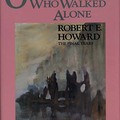Jane Austen: Persuasion

I read an extensive and exquisite post on the sequels to Jane Austen’s novel not long ago, and I immediately got a craving for one of Ms. Austen’s books. Although my all-time favorite is Pride and Prejudice, this time I chose Persuasion for some reason. I only read this novel once so far, and I did not like it so very much, but I was curious how it might strike me now, reading it for the second time. Moreover, I could not really recall the story of this novel, while I know Pride and Prejudice almost by heart, and even though the story of Mr. Darcy and Elizabeth never ceases to fascinate me, now I wanted something else.
I will not dwell on the story, on the one hand, it can be found all over the web, and on the other hand, Persuasion is set in the same limited world where all the Austen novels are set, and it depicts the same intricate relationships existing among the noblemen of the countryside that can be found in every Austen novel. So just as in Ms. Austen’s other books, in Persuasion we get to know all the games, intrigues, strengths and weaknesses of every character, with a special emphasis on their attempts to catch a husband or a wife. In the meantime, we also get a clear and quite ironic picture of the everyday life and insurmountable problems of the country gentry.
I assume it comes as no surprise that after tackling the necessary number of obstacles, the hero and heroine of Persuasion are successfully united, but it seems to me that the mere fact of the protagonists’ marriage is the least important part of the novel, and in fact Ms. Austen gets done with the big reconciliation and all the usual explanations in a couple of pages. In comparison with this, it is much more emphatic that the protagonists need to go through a long series of difficulties which provides them with ample opportunities to get to know their own and their lover’s personality, to learn to think in an independent and mature way, to regret their previous mistakes, and finally, to become really deserving of a sensible marriage based on similar ways of thinking and similar virtues.
Still, the process during which the characters acquire the self-awareness and maturity necessary for marriage is in itself but a small part of the novel. Much more important is the way Ms. Austen depicts contemporary society, and the way she proves her opinions with several witty, often sarcastic observations. Sometimes I felt as if Ms. Austen bothered with coming up with a plot at all only for the reason that hiding behind the façade of a light, romantic story she could freely indulge in irony and write down her opinions of everything she considered tiresome or ridiculous. Of course my heart is not made of stone either, and I shed some tears at the relevant parts of the novel, however, the fact that in the whole book we find around 5 pages of romantic love as opposed to 250 pages of realistically depicted vanity, selfishness, intrigue, vacuousness and weakness, seems to indicate that Ms. Austen was not the author of silly, lovely stories for romantic girls.
The relative unimportance of the plot itself was also made obvious to me by the fact that Persuasion reminded of me Pride and Prejudice in several details. For instance, when the heroine, Anne learns at the beginning of the novel that there is a good chance that her former lover will come to the neighborhood again and will tread on the same paths she used to tread on, she emits the same big sighs as Ms. Eliza Bennet does when she arrives at Pemberley as a visitor, and contemplates that Pemberley is Mr. Darcy’s home and she is now walking on the same ground as her beloved does at other times. Of course it is possible that the heroines of a given novelist are in the habit of reacting to similar situations in a similar way, but I can also imagine that, when writing Persuasion, it was much more important for Ms. Austen to express her opinion than to create absolutely unique heroines, reactions and scenes.
And I believe that she succeeded very well in writing a highly ironic and critical novel. Apart from creating a series of strongly caricaturistic character (such as Anne’s father, the exceedingly vain Sir Walter; her sister, Mary, who always imagines that she is being trodden on by the others; or the slimy Mr. Eliot), she also strikes out at the everyday airs and social graces. Reading Ms. Austen in the 21st century, it seems at once funny and pathetic how many things depended on such politeness formulas as making a sufficiently low bow for the other person, keeping up a conversation for the right amount of time, or being the winner in the “who is the most polite” competition of two equally courteous ladies – and Ms. Austen also knows it very well how ridiculous this is. As a matter of fact, it is quite a wonder that despite all the obstacles and the general ignorance of the majority of the characters Ms. Austen is optimistic enough to let all her heroines be married at the end of her novels and to go as far as to imply that their marriage will be a success.
And to answer the question implied in the first paragraph of this post: I liked Persuasion much better now than for the first time, and I am sure that in the future I will not omit it from my regular Austen re-reading sprees.





